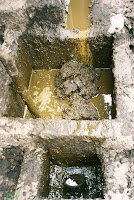 In the past few years we have been hearing more and more about the need for alternative fuels. The reality is that we are starting to consume oil faster than we are discovering new sources. In other words, oil demand is outpacing supply. The development of alternative fuels is quickly becoming a necessity. One alternative that has caught a lot of attention is agrifuel, which is often made from corn, wheat, soybean, cassava, sugar cane, or palm. The truth behind agrifuel is that the cost associated with it far exceeds the benefit. Some of the biggest costs from agrifuel are:
In the past few years we have been hearing more and more about the need for alternative fuels. The reality is that we are starting to consume oil faster than we are discovering new sources. In other words, oil demand is outpacing supply. The development of alternative fuels is quickly becoming a necessity. One alternative that has caught a lot of attention is agrifuel, which is often made from corn, wheat, soybean, cassava, sugar cane, or palm. The truth behind agrifuel is that the cost associated with it far exceeds the benefit. Some of the biggest costs from agrifuel are:
- deforestation to make room for growing these crops
- starving developing countries of needed food
- increasing water use to grow the crops
- exploiting developing countries land to grow fuel needed in developed countries
There are many other alternative fuel options that no doubt have fewer costs and are overall more energy efficient.

 While in Africa I came across an alternative fuel being used. Several homes were making use of biofuel. The source used for this biofuel was cow manure. A family's cows would be situated a couple of hundred feet from their home. The cow manure would be pushed to one location and mixed with water. All the big chunks of manure would then be tossed aside. The remaining liquid would flow into a pipe. The pipe would feed into a large underground tank.
While in Africa I came across an alternative fuel being used. Several homes were making use of biofuel. The source used for this biofuel was cow manure. A family's cows would be situated a couple of hundred feet from their home. The cow manure would be pushed to one location and mixed with water. All the big chunks of manure would then be tossed aside. The remaining liquid would flow into a pipe. The pipe would feed into a large underground tank. While in the underground tank, the liquid would form a gas. This gas would run through the pipes running into the house. Anything in the tank that did not turn into gas would go out another hole and the remaining matter would be used as fertilizer.
While in the underground tank, the liquid would form a gas. This gas would run through the pipes running into the house. Anything in the tank that did not turn into gas would go out another hole and the remaining matter would be used as fertilizer.
Once inside the home I could see the gas pipes, just like the thin gas pipes inside of an American home. In the evening the gas lamps would be lit to provide light inside the house (see 1st picture above). All meals were cooked on the gas stove. I happened to have enjoyed a cup of coffee made on the gas stove, which was made possible by the family's cows.
Recently a California dairy converted its big 18-wheeler trucks to run on biomethane produced from the dairy's cows. The Hilarides Dairy was featured in a February 2009 article and YouTube video on wired.com.
Although I am no expert on alternative fuels, I can only imagine that there have to be fewer costs associated with other fuels such as biofuel, wind, and solar than agrifuel. Cutting down trees, starving out developing countries, and increasing water consumption can not possibly be the best solution to our oil needs.
No comments:
Post a Comment